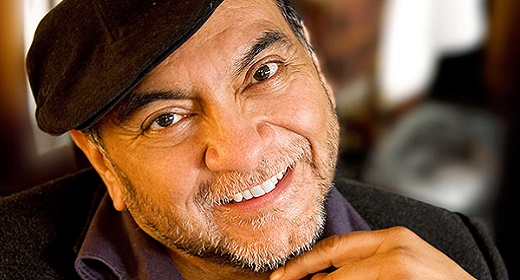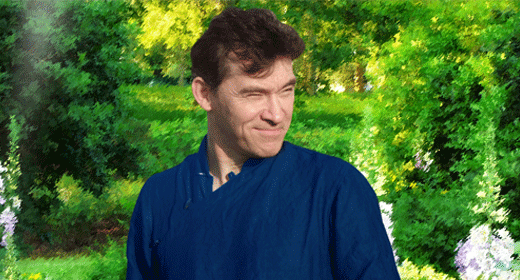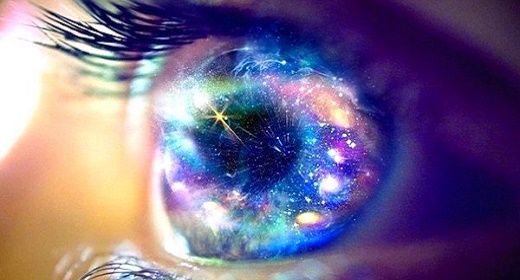by Don Miguel Ruiz: Don Miguel Ruiz says four things can bring you the freedom, happiness and love you’re looking for.

Read on as he answers common questions about applying each one of The Four Agreements to your daily life.
Agreement #1: Be Impeccable with Your Word
All the magic you possess is based on your word. Depending upon how it is used, the word can set you free, or it can enslave you even more than you know.
Question: Does “being impeccable with your word” mean that you always tell the truth, even when it hurts someone’s feelings? How can I be impeccable without damaging my relationships or hurting others?
don Miguel: Well, you are also impeccable when you don’t put your nose where nobody wants it. You don’t have the right to try to fix other people’s points of view. You don’t need to be right and make them wrong because of what you believe. They have the right to suffer if that’s what they want to do. Many times, people don’t want you to tell them the truth; they only want you to tell them what they want to hear. You have to be wise enough to understand that when they ask you something, they are expecting a certain answer. You can go along with the game or not; it’s up to you. But you don’t need to create a lot of enemies by telling them what you think is true. That is not what they want to hear.
You can avoid the question, or you can tell them that you don’t have any opinion about it. The problem is that they can take your words and change your words, and use them for gossiping. Many people only want your point of view to get evidence of what they believe about themselves or about someone else. They will come to you and ask, “What is your opinion? What do you think about this or that?” and you can give your sincere opinion, but they will change it. And then they will say that you said that about them, and involve you in gossip.
Sometimes you give information to your friends because you trust them and believe they are loyal to you. Maybe it’s your best friend, and you gossip about yourself and tell her what you feel about yourself, about other people, making the assumption that she will not share it with anybody. And perhaps this is true, until she is no longer your friend. If something happens and she gets hurt or angry and breaks the friendship with you, a way for her to get even with you is to gossip about all the information you gave her. Something you have to learn about gossiping is that it begins with yourself. Don’t gossip about yourself.
Question: When someone is gossiping, what is the most tactful way of stopping the gossip?
don Miguel: The best way to stop others from gossiping is by not reacting to their gossip. If you react, you encourage them to gossip even more. If you don’t react, and they see that it’s not affecting you, at a certain point they just let it go. If you don’t accept the poison they send, that poison doesn’t affect you.
Question: If I am talking to a friend of mine about another person we both know, does this mean I am gossiping even if I don’t say anything bad about that person?
don Miguel: Gossiping can have good intentions, bad intentions, or no intentions at all. But even when the originator of the gossip doesn’t have a bad intention, the receiver of the information can change it into a bad intention. Whoever hears the information digests the information, and then changes it according to his or her perception. That’s why it’s better not to gossip at all.
Question: If someone asks me what I think about someone else, and I tell the truth, I feel like I’m gossiping. If I don’t tell the truth, then I’m lying to that person. What should I do?
don Miguel: Just don’t give any information. It’s the same advice as my grandfather used to give me: “Don’t put your nose where nobody wants it.” Just say, “I have no opinion” or “It’s not my business.”
Question: Whenever I think about improving myself, I get confused because then I’m not accepting myself exactly as I am. How can I accept myself exactly as I am and still try to improve myself?
don Miguel: You can be aware that you want to improve yourself, but not because you believe you are not good enough. It is possible to improve yourself without rejecting yourself. By having this awareness and not judging yourself, you have already improved. If you accept yourself, you no longer judge yourself or find yourself guilty. If you don’t find yourself guilty, you will not punish yourself, and right away things start changing for the better.
Agreement #2: Don’t Take Anything Personally
All people live in their own dream, in their own mind; they are in a completely different world from the one we live in. Even when a situation seems so personal, even if others insult you directly, it has nothing to do with you.
Question: The second agreement, “Don’t take anything personally,” is the agreement I really want to master in my life, but I can’t see how someone’s criticism of me is not personal. If my boss says something that really hurts my feelings, how can you say this isn’t personal or that it’s not about me?
don Miguel: I want you to imagine that one day you wake up and find yourself in Europe during the Middle Ages. Imagine what these people believe about everything — about religion, science, medicine. You see people suffering because their lives are ruled by superstition; they live in constant fear because of the lies they believe. There are people who don’t bathe for months because it is a sin. Imagine the moral judgments of that society: what is right, what is wrong, what they believe is right or wrong.
Put yourself in that place, just for a moment. It is obvious to you that the social, moral, and religious rules of that time are based on lies, but for them it’s not that obvious. Knowing what you know, and knowing what they believe, are you really going to take personally what they say to you, what they believe, the way they judge you? Are you really going to feel emotionally hurt for the judgments they have about you when you know the way they dream?
Response: Well, I guess that’s true, but I would also understand that these people have a different worldview.
don Miguel: Everybody you meet has a different worldview, even now. Imagine your boss at work with those beliefs of eight hundred years ago. With the way you think right now, you will not even suffer because whatever tantrum the boss has is not going to affect you. It is going to be funny. Of course you will refrain from laughing because that could have dire consequences. Laugh about the priests eight hundred years ago, and you were dead. You had to learn not to laugh at them.
It’s the same thing now. It’s simply that people have different points of view. One of the things I always suggest is to learn to make fun of yourself. Then instead of judging yourself or judging another person, you are going to have a great time.
Response: Okay. I get it now. Still, it’s going to be a challenge to think it’s funny when someone is putting me down or yelling at me.
don Miguel: Many of the funniest things that happen in our lives don’t look funny when they are happening. Later we can laugh, but at that time we are possessed by our own point of view. The next time you get angry, or jealous, or sad, put a mirror in front of your face and look at your expression. Who is behind that face? Just remember this: any time you see any human in anger, any time you see the envy or the jealousy of someone, he or she is possessed. It is nothing personal.
Question: I am doing my best not to take anything personally. I understand that it’s not about me, but when people criticize me or say something hurtful, I still feel really awful. What am I doing wrong?
don Miguel: There is nothing you are doing wrong. You feel like that because you believe what they say, because you align your beliefs with them. What someone says will only affect you if you believe it.
Imagine that you are a child, and you make a little mistake that angers your father. You don’t even know what the mistake is, but your father is angry and says, “You are a stupid child; you should feel ashamed of yourself.” You agree with your father, and put your faith in that agreement; you believe it 100 percent without a doubt.
You grow up and now you say, “I am intelligent; it’s not true that I’m stupid.” But when someone comes and says, “What you did was stupid; you should be ashamed of yourself,” you react with anger and it’s because you believe what that person said. You kept that knowledge in your head, the agreement that it’s true that you are stupid. Later, when someone touches that little splinter, the reaction is a lot of emotional pain. But if you don’t believe what he says, you don’t react. You are going to laugh.
If you believe you are worth it, and someone says, “You don’t deserve that,” it doesn’t affect you because you don’t believe it. You agreed that you are worth it, so you just laugh about it, and say, “Oh sure,” but you don’t believe it. And because you don’t believe it, it will not affect you.
Agreement #3: Don’t Make Assumptions
We have the tendency to make assumptions about everything. The problem with making assumptions is that we believe they are the truth. We make an assumption, we misunderstand, we take it personally, and we end up creating a whole big drama for nothing.
Question: How does a person stop making assumptions? My mind goes off and starts to think of all these things, and then I suffer all the time for no good reason.
don Miguel: The problem is that you think too much. You are way too smart. Think, think, think. Your mind is like a wild horse that takes you wherever it wants to take you. You have no control over all that thinking, all those assumptions — not just one assumption, a whole universe of assumptions. Why do you need to think at all? Something I teach my apprentices is to become a master of thinking.
For me, thinking is a tool for communication. For hours I just don’t think, and not because I’m stupid. I don’t think because I have no need to think. What I know, I know. I’m full of knowledge, but why do I need to think about what I know? Thinking, thinking, thinking: What is she doing? What is he doing? What if this happens? What if that happens?
Just thinking “What if?” creates a huge drama in our lives. Every human can think a lot, and thinking brings fear. It’s two o’clock in the morning, and you are still thinking, thinking, thinking. You need to tame the horse, and learn to ride the horse. The horse has to obey you and take you where you want to go.
You know, there is an impeccable way of thinking. If you have a problem, it’s time to think. Once you make a choice about how to resolve the problem, it’s time to stop thinking and take action. Now you know the solution; it’s over. But guess what? You have a problem, you think of the solution, and you don’t stop thinking. You keep thinking, and you come up with another solution, and you still don’t stop.
If you have just one solution, you have all the power of intent and you can resolve it. If you have two solutions, you divide intent in two. Three solutions—you’re losing power. Soon you’re confused, and you have to think about which of the solutions is the best. When you feel confused you feel powerless, and you need someone else to tell you what to do. Making assumptions is all about thinking. If you just stop thinking, you no longer make assumptions.
Question: My question is about knowledge and assumptions. I was wondering if the voices I hear in my head and what you call “knowledge” are the same as assumptions?
don Miguel: We can divide everything into what we know, which is the known; what we don’t know, which is the unknown; and what we will never know, which is the unknowable. We only know what we know: our knowledge. We only know the information accumulated in our mind by agreements. We know the whole reality that we perceive, we know our dream, we know our point of view.
The unknown is another story. When you meet someone, you create an image of that person and project it on that person. You only know what you project, and this is the known for you. But what that person has in his mind is unknown. You can make the assumption that you know what that person has in his mind. You can make the assumption that you know your children, or your father, or your mother, or even your dog, but you don’t know them. You only know what you believe about them; and it’s only true for you, no one else, because it’s your dream. The truth is that you will never know them. You hardly know yourself, but you pretend to know other people.
You only know what your knowledge tells you. You only know the judgments that you can make about everybody, the interpretations, your personal point of view. You don’t know what other people feel, what they think, what they believe, what they are dreaming. And you make the assumption that they believe what you believe, that they feel what you feel, that they see the world the way you see the world. And it’s knowledge that controls you.
As I said before, if we control knowledge, it becomes a tool of communication. We don’t make assumptions, we ask, and other people will tell us what is in their world. It’s that simple. We don’t have to make assumptions, but we also know that they will tell us what they know. It doesn’t mean it’s true.
Agreement #4: Always Do Your Best
In your everyday moods your best can change from one moment to another, from one hour to the next, from one day to another. Your best will also change over time. As you build the habit of using The Four Agreements, your best will become better than it used to be.
Question: I always try to do my best, but what should I do when someone asks me to do something that I don’t want to do or that I’m too tired to do? How do I do my best when I am exhausted or just need time for myself? I feel like I’m always disappointing myself or someone else.
don Miguel: First, you have to be honest with yourself and see if you want to do whatever someone is asking of you. If you don’t want to do it, and you have the opportunity of not doing it, just be honest and find the easiest way to say, “I will not do it.” Sometimes, of course, this is not possible. You might have a contract with someone, or feel you have to do it because you know it’s going to help you in your life.
Then instead of believing that you don’t want to do it, it’s up to you to change your belief, create desire, and do it. Use your reason, your knowledge, to talk to yourself and say, “Yes, I want to do it,” and tell yourself why it’s good for you to do it, even if you really don’t want to do it. In that moment you will do your best, but first you have to change your mind, change the action, because whatever you do, there will be a reaction.
If there is something you don’t like to do, and avoiding it will only cause a bigger problem for you, then you’re not being impeccable. If you have a problem, even if you don’t want to face it, it is better to face the problem, whatever it is, and do your best. Once you have done that, you don’t have to worry about it anymore.
Question: I have been taking care of other people my entire life. Recently, I decided to put myself first and take care of some of my own needs. As soon as I decided this, the Judge came up and said, “No, no, no. You are being selfish; you should be taking care of everybody else.” Well, that is how I’ve lived my life, and I’ve been totally empty.
don Miguel: People around you are used to you helping them and sacrificing yourself for them. They can ask you for whatever they want, and they know you will do it for them. Well, the day you stop doing that, what happens? Others will tell you that you are selfish. Who is really selfish? Are you, the martyr, the selfish one, or is the one who takes advantage of you the selfish one?
You no longer need to take care of other people, but you believe that you do; it is one of the agreements you have with yourself. You can break that agreement by doing exactly the opposite. By practicing the opposite, many other agreements that limit your freedom will go along with it.
Question: I have been doing my best to improve my life, but every time I start making progress and begin to feel happier, I fall right back into my old habits. Why is it such a struggle?
don Miguel: Because you believe what you know without a doubt, and whatever you believe is what rules your life. People believe 100 percent in what they believe they are. That is why they live their lives the way they do. If you believe you are a loser, what is going to happen? Because you believe you are a loser, thy will be done. Your reasoning mind can say, “I want to be rich, I want to be healthy,” but what you believe is not in your reasoning mind. What you believe is in your “Book of Law,” and your faith is trapped inside that book. Just as a government has a book of law that rules society, your belief system is the Book of Law that rules your life. Whatever is in your Book of Law is your supreme truth. You base all of your judgments on these laws, even if they go against your own inner nature.
Question: I have always tried to do my best in everything I do, but after reading The Four Agreements, I realized that I do it because I’m looking for the approval of other people. Then if I don’t get the approval, I feel victimized, or if my husband makes a critical comment, I feel discouraged and wonder, “What’s the use?” Can you comment on this?
don Miguel: During our domestication, one of the most powerful agreements we make is the need for approval. Because of the need for approval, one opinion can lift us up or completely destroy us. Searching for approval becomes a routine, and that is how the outside dream has power over humans and manipulates us like puppets. We have to ask other people for their opinions: “How do I look? Am I doing okay?”
We need the support and acceptance of others; we need to be good enough for someone else. We even need someone else to need us in order to feel like we have a reason to be alive. What people think about us is so important that we try to please everybody else, and leave ourselves until last.
Doing your best does not mean to try to be good enough for someone else. You will never be good enough for someone else. The truth is that with all your agreements you will never be good enough for yourself either. No matter what you do, it won’t be right. Your best is never good enough because you made those agreements with the Judge who lives in your mind. You will never please the Judge because that Judge is very strict, very strong, and very abusive. There is only one way to silence the voice of the Judge, and that is to make new agreements with ourselves. If we are going to have agreements, let’s have agreements that make us happy.









































